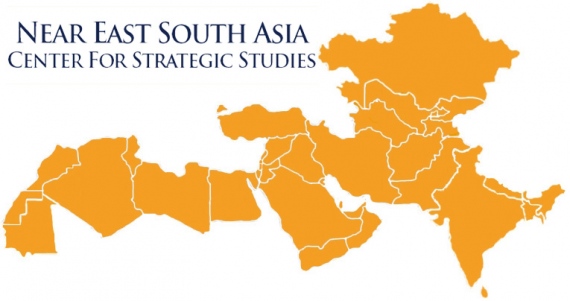A contribution from NESA intern, Chris Chapman.
This week eleven Syrian opposition groups signed onto an Islamic alliance in efforts to repudiate the legitimacy of the internationally backed Supreme Military Council (SMC) and Syrian National Coalition (SNC) and form a united front against Bashar al Assad. Led by the Islamist group, Jabhat al-Nusra this bloc represents a majority of the militant opposition in Syria. Their letter stated four main points: first, for all opposition to unite under an Islamic framework and operate under sharia law, second, they can only be represented by those living within Syria, third, a denunciation of the exile opposition National Coalition backed by the West, and last, a plea for unity within the opposition ranks to avoid further conflict.
This alliance may or may not last, but it does reveal three factors about the current and future status of the opposition forces in Syria. The signing of this agreement is a direct blow to the US and Western backed attempts to support a moderate opposition, it shows a new level of rebel interaction, and presents a potential game-changer for future opposition dynamics.
To start, the creation of this alliance hurts the US and West’s efforts to find and support ‘moderate’ opposition units. Many of the groups under the direction of their SMC, the Western backed military wing, have signed onto this alliance. So, will US aid continue to arrive? These units are part of both the SMC and this new Islamic agreement. A main reason for these groups signing on was to show their objection to the exile opposition group, the Syrian National Coalition. Rebels within Syria do not accept their legitimacy or any possible government they intend to establish. So what we see is the US and its chosen ally in Syria, are unfortunately cut off from the on-the-ground reality of the opposition. This act was done out of frustration with the US and West’s inability to provide what the rebels see as adequate support. It muddies and already murky situation for the US to be dealing in.
Next, the eleven participants are not all using this purely to establish sharia and an Islamic Syria; some are using it as protection. Recent infighting between more extreme units and moderates for control of towns pushed these moderate groups to join this bloc. In essence, this is politics of protection for these groups. They are all fighting for the same result, the end of Assad’s regime, so this is an effort to decrease tensions between groups fighting on the same side and assure a sense of security from what they deem an ally. It is an interesting turn of events and one that I want to keep my eye on for future possibilities within the rebel community.
Furthermore, for the above reasons, I think that if this alliance decides to organize itself into a political entity, it would rival the SNC for control of a post-Assad Syria. Divided, these groups stood little chance of rallying enough support to succeed politically. Combined, however, these groups represent a majority coalition of the opposition within Syria. They are the main fighting force against Assad and as it stands, would garner more support than any party comprised of exiles.
In the end, the existence of this agreement amongst so many rebel units bodes ill for the US as it tries to navigate the Syrian conflict. The statement alone of their signatures sent a clear message that the rebels are done waiting for US assistance and wholly disappointed with US and Western attempts to act on behalf of their best interests. It will be much more difficult for the US to make inroads and sustainable relationships with such views against it.
Chris Chapman is currently a Research Intern at the NESA Center and an M.A. candidate at American University’s School of International Service
Please note that the views expressed in this piece do not represent the official policy or position of the National Defense University, the Department of Defense, or the U.S. government.
